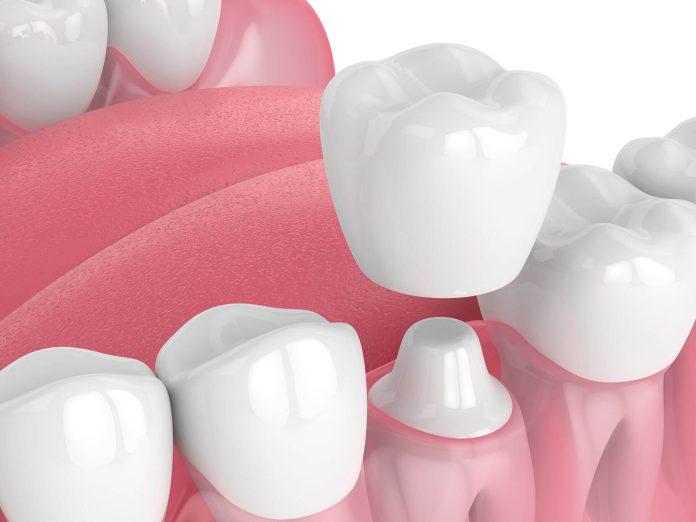Dental emergencies can occur at any time and can be quite distressing. Whether it’s a severe toothache, a broken tooth, or an injury to your mouth, knowing how to handle these situations promptly and correctly can make a significant difference in minimizing pain and preventing further damage. This guide will provide you with essential steps to take during a dental emergency, ensuring you are well-prepared to deal with unexpected dental problems.
Recognizing Dental Emergencies:
The first step in handling a dental emergency is recognizing the situation. Not all dental issues require immediate attention, but some instances demand urgent care. Here are some common dental emergencies that require prompt action
Severe toothache: A persistent, throbbing toothache could indicate an infection or an abscess, which requires immediate dental treatment.
Broken or chipped tooth: If a tooth is cracked, broken, or has a large piece missing, it’s considered an emergency. Save any broken fragments if possible and seek dental assistance as soon as possible.
Knocked-out tooth: When a tooth gets knocked out due to an accident or injury, it’s crucial to act quickly. Handle the tooth by the crown (top part), rinse it gently with water if dirty, and try to place it back in the socket. If that’s not possible, keep the tooth moist in milk or saliva and seek immediate dental care
Dental bleeding: Uncontrolled bleeding from the mouth or gums, whether due to an injury or after a dental procedure, requires immediate attention. Apply pressure to the bleeding area and visit a dental professional promptly.
Swelling or abscess: Facial swelling, especially when accompanied by a severe toothache or fever, could indicate an abscess. This condition requires immediate treatment to prevent the infection from spreading.
Immediate Actions To Take:
When faced with a dental emergency, there are a few immediate actions you can take to alleviate pain and minimize further damage before you can reach a dental professional:
Rinse with warm saltwater: Rinse your mouth gently with a warm saltwater solution to help reduce inflammation and cleanse the area. Mix half a teaspoon of salt in eight ounces of warm water and swish it around your mouth for 30 seconds before spitting it out.
Apply a cold compress: If there is swelling or facial trauma, apply a cold compress or ice pack wrapped in a thin cloth to the affected area. This can help reduce swelling and provide temporary relief.
Use over-the-counter pain relievers: If you’re experiencing pain, over-the-counter pain medications like acetaminophen or ibuprofen can provide temporary relief. Follow the recommended dosage instructions, and consult a healthcare professional if you have any concerns or allergies.
Contacting A Dental Professional:
After taking immediate actions, it’s crucial to contact a dental professional for further guidance and to schedule an appointment. Explain the situation clearly to the dental office staff, describing your symptoms and the urgency of the issue. If it’s during regular office hours, you may be able to get a same-day appointment. However, if it’s after hours or during weekends, you may need to seek emergency dental services or visit an emergency room if the situation is severe.
Preparing For Dental Emergencies:
Being prepared for dental emergencies can help you handle unexpected situations with more ease. Here are some steps you can take to be better prepared:
Maintain good oral hygiene: Regularly brushing, flossing, and visiting your dentist for check-ups can help prevent dental emergencies. Good oral hygiene reduces the risk of tooth decay, gum disease, and other dental problems that could lead to emergencies
Have a dental emergency kit: Consider assembling a dental emergency kit that includes essentials like gauze, a small container with a lid, over-the-counter pain relievers, and the contact information of your dental office. This kit will come in handy during emergencies when you need immediate relief.
Research emergency dental services: Familiarize yourself with local emergency dental services or clinics that provide urgent dental care. Make a note of their contact information and hours of operation, so you know where to turn in case of an emergency.
Dental Office Galleria:
If you’re looking for a reliable dental office that can handle emergencies promptly and efficiently, Dental Office Galleria is an excellent choice. Located in [insert location], our highly skilled team of dental professionals is equipped to handle a wide range of dental emergencies, ensuring you receive the care you need when you need it. We prioritize patient comfort and strive to create a welcoming environment for all our visitors. Contact Dental Office Galleria at [insert contact information] for any dental emergencies or to schedule a regular dental appointment.
Conclusion:
Dental emergencies can be stressful, but knowing how to respond and seeking timely dental care can make all the difference. By recognizing the signs of a dental emergency, taking immediate actions, and contacting a dental professional promptly, you can minimize pain, prevent further damage, and ensure a swift recovery. Remember to stay prepared, maintain good oral hygiene, and have the contact information of a reliable dental office like Dental Office Galleria readily available. With these guidelines in mind, you can navigate dental emergencies with confidence and protect your oral health.
